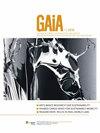谜题如何塑造我们对生物多样性的理解:呼吁对教育游戏中的生物多样性表现进行更多研究
IF 1.9
4区 社会学
Q4 ENVIRONMENTAL SCIENCES
引用次数: 0
摘要
游戏作为一种教学工具(游戏邦注:如谜题)在环境教育中逐渐得到认可,不仅可以促进技能发展,还可以培养对自然世界的特定理解。然而,一个包含自然表征的儿童拼图可能会不情愿地导致对生物多样性主题和过程的“误解”,并过度简化人与自然之间的关系。为了解决这个问题,生物多样性的积极内涵可能会促使人们对生物多样性进行更细致、更多方面的概念转变。本文章由计算机程序翻译,如有差异,请以英文原文为准。
How puzzles are shaping our understanding of biodiversity: A call for more research into biodiversity representation in educational games
Games as a didactic tool (e. g., puzzles) are gaining recognition in environmental education to promote skill development, but also to develop a specific understanding of the natural world. However, a children’s puzzle containing representations of nature may unwillingly lead
to “misconceptions” of biodiversity themes and processes, and an over-simplification of the relationship between people and nature. To solve this problem, positive connotations of biodiversity may prompt a conceptual change to a more nuanced, multifaceted conception of biodiversity.
求助全文
通过发布文献求助,成功后即可免费获取论文全文。
去求助
来源期刊

Gaia-Ecological Perspectives for Science and Society
ENVIRONMENTAL SCIENCES-
CiteScore
2.30
自引率
18.80%
发文量
43
审稿时长
>12 weeks
期刊介绍:
GAIA is a peer-reviewed inter- and transdisciplinary journal for scientists and other interested parties concerned with the causes and analyses of environmental and sustainability problems and their solutions.
Environmental problems cannot be solved by one academic discipline. The complex natures of these problems require cooperation across disciplinary boundaries. Since 1991, GAIA has offered a well-balanced and practice-oriented forum for transdisciplinary research. GAIA offers first-hand information on state of the art environmental research and on current solutions to environmental problems. Well-known editors, advisors, and authors work to ensure the high quality of the contributions found in GAIA and a unique transdisciplinary dialogue – in a comprehensible style.
 求助内容:
求助内容: 应助结果提醒方式:
应助结果提醒方式:


